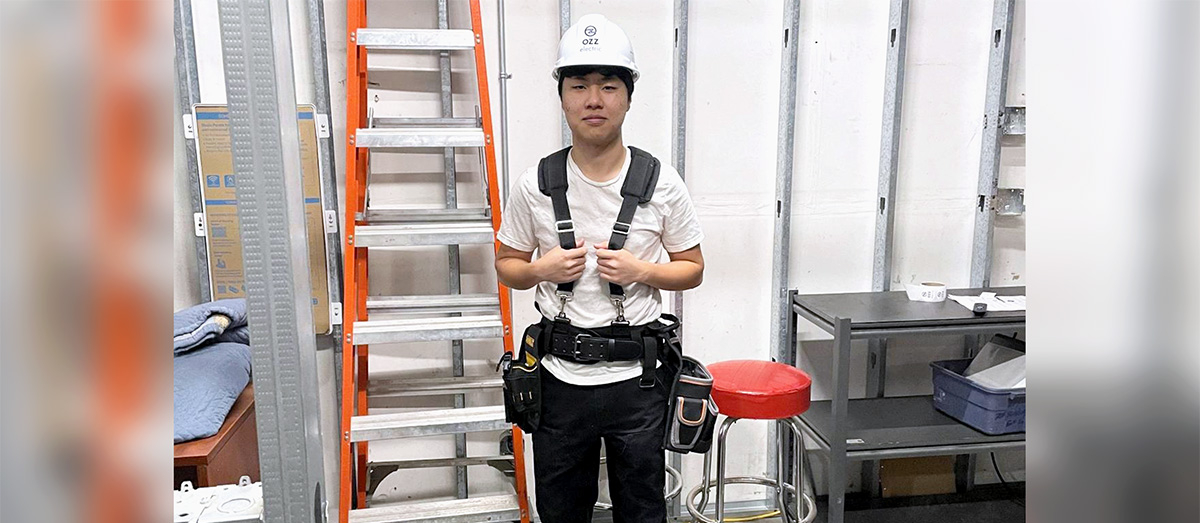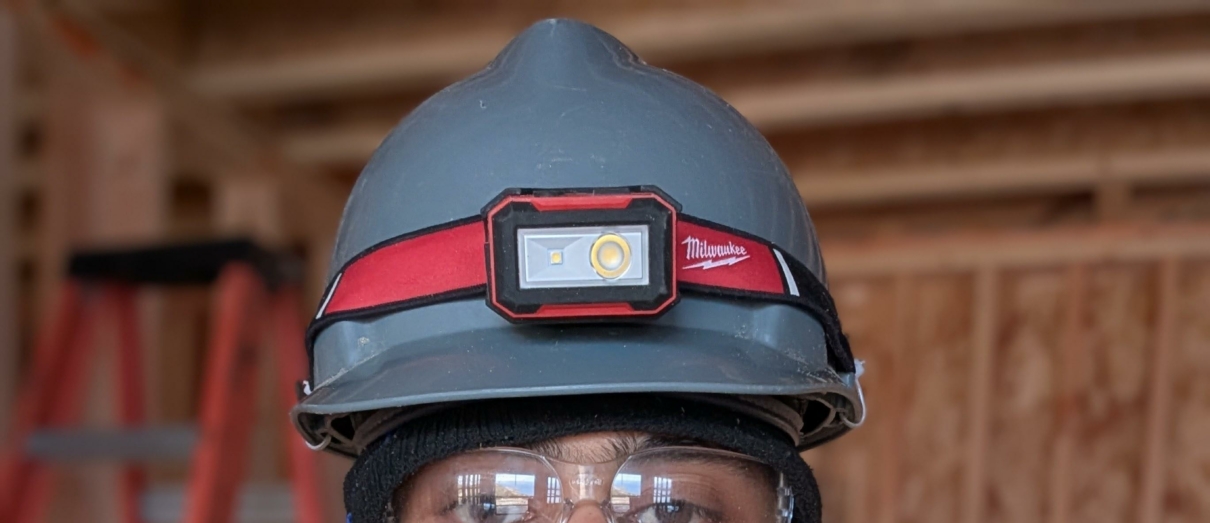At the heart of BC’s construction industry is a network of dedicated Mentors shaping the next generation of skilled workers. Among these mentors is Mario Galdones, a three-time Mentor with the BCCA Building Builders Mentorship Program and a former participant in the Skilled Trades Employment Program (STEP). Mario’s journey — from apprentice to Mentor — is a testament to the power of mentorship and the impact of paying it forward in the construction sector.
From Apprentice to Leader: Mario’s Resilience and Growth
Mario’s path in the construction industry was marked by resilience and determination. During the final year of his apprenticeship, financial constraints nearly derailed his plans to complete his schooling. Thankfully, STEP provided support that allowed him to focus on completing his certification. This support not only enabled him to finish his apprenticeship but also propelled him to achieve the BC Wall and Ceiling Association’s highest Red Seal test score at the time.
“Without help, from STEP and various tradespeople over the years, I would not be where I am. For that, I am grateful, and it’s my mission to pay that forward.”
Today, STEP continues to bridge the gap for job seekers and apprentices, connecting them with meaningful careers in construction and providing vital resources for success — a testament to the program’s lasting impact, much like it had on Mario.
Fueling Ambition Through Transformative Mentorship
Mario’s passion for mentorship stems from his deep desire to empower individuals striving for success in the industry. Whether guiding young professionals or supporting newcomers to Canada, Mario thrives on nurturing potential and fostering growth.
“I feed off of ambition,” says Mario. “I love young people and those new to the industry that desire to succeed. By helping them, I fuel my own drive. Helping someone else succeed gives me a greater sense of fulfillment than even my own success.”
Interestingly, mentorship has also fueled Mario’s personal and professional growth, prompting him to reflect on his own practices and continuously strive for improvement.
“I started to take my own advice. I started to plan better, both short and long term. I became one of my own Mentees in the sense that I started to aggressively seek out continuous improvement. Both as a tradesperson, and a man in general. Mentees would ask me how they could be better, and that caused me to internalize and ask myself how I could be better myself.”
Building Lasting Connections: The Power of Enduring Relationships
For Mario, the most rewarding aspect of mentorship is the lasting relationships he’s built. He maintains a strong bond with his first Mentee, providing ongoing advice and support, even though she is no longer in Canada.
“The fact that she continues to reach out to me means the world to me,” Mario shares. “I’ll continue to support her in every way that I can during her journey.”
Empowering Diverse Talent: Newcomers and Women in Construction
Mario’s mentorship journey has extended across diverse groups, including newcomers to Canada, women, and youth. His approach is rooted in empowering Mentees to take ownership of their career paths.
“Let them ask questions, and be in the driver seat,” he emphasizes. “It can be a challenge at times to avoid steering someone’s ship, when you should be focused on letting them steer it for themselves.”
Mario is also a vocal advocate for increasing diversity and inclusion in the trades, particularly when it comes to supporting women in construction.
“Supporting women in the trades isn’t just the right thing to do, it’s a necessity for it to continue to grow and thrive. The industry as a whole suffers today for being unapologetically uninclusive for far too long.”
Addressing the Skilled Labour Shortage Through Mentorship
Mario recognizes mentorship as a critical solution to addressing the skilled labour shortage in the construction sector.
“To thrive in this industry, you need to do two things: earn and learn. Earning fair wages is the easy part, however the learning portion can be hit or miss. With tight deadlines and budgets, training can go by the wayside at times, hence part of the reason why the skilled labor shortage exists.”
Programs like STEP and Building Builders are pivotal in equipping BC’s construction workforce with the skills and guidance needed to meet the growing demands of the industry.
Inspiring Future Generations: A Legacy of Growth
Mario’s career is poised for an exciting new chapter. In March 2025, he transitioned into his new role as an Instructor at the BC Finishing Trades Institute, where he will continue shaping the future of BC’s construction workforce.
“My goal isn’t just to help people find jobs — but grow careers. I hope by lending a hand to others and assisting them, it inspires them to pay it forward and to the same. I also hope to see some of my Mentees or students become so successful they surpass me in terms of achievements, and that will be the ultimate payoff for me.”
Essential Advice for Aspiring Tradespeople
If Mario could give one piece of advice to his younger self, it would be simple yet powerful: “Don’t hesitate to ask questions.”
“A younger me felt “stupid” at the time, and didn’t want to ask too many questions to expose my lack of knowledge. Looking back, I would have had a better start if I had the courage to be more inquisitive and ask more questions.”
Mentorship Theme Song: We Are the Champions
If mentorship had an anthem, Mario would choose ‘We Are the Champions’ by Queen — a timeless celebration of teamwork, confidence, and triumph.
Fostering Inclusive Worksites with the Builders Code
As a Lead Quality Lead at EllisDon — a proud Builders Code signatory — Mario recognizes the importance of fostering respectful, inclusive worksites. The BCCA’s Builders Code establishes a high standard for workplace conduct, ensuring that everyone, regardless of background, can thrive in a safe and supportive environment.
Building a Legacy of Empowerment and Inclusion
Mario Galdones’ story highlights the profound impact that mentorship can have — not just on Mentees, but on Mentors themselves. Through his dedication to supporting others, Mario isn’t just building careers — he’s creating a ripple effect that strengthens BC’s construction workforce and inspires future generations.
As he steps into his role as an instructor, Mario’s legacy of earning, learning, and paying it forward will continue to shape the future of the construction industry.
Ready to Advance Your Construction Career?
If you’re ready to take the next step in your construction career, STEP can connect you with the resources and opportunities to succeed. Learn more about how STEP can support your journey by visiting STEP’s website.












